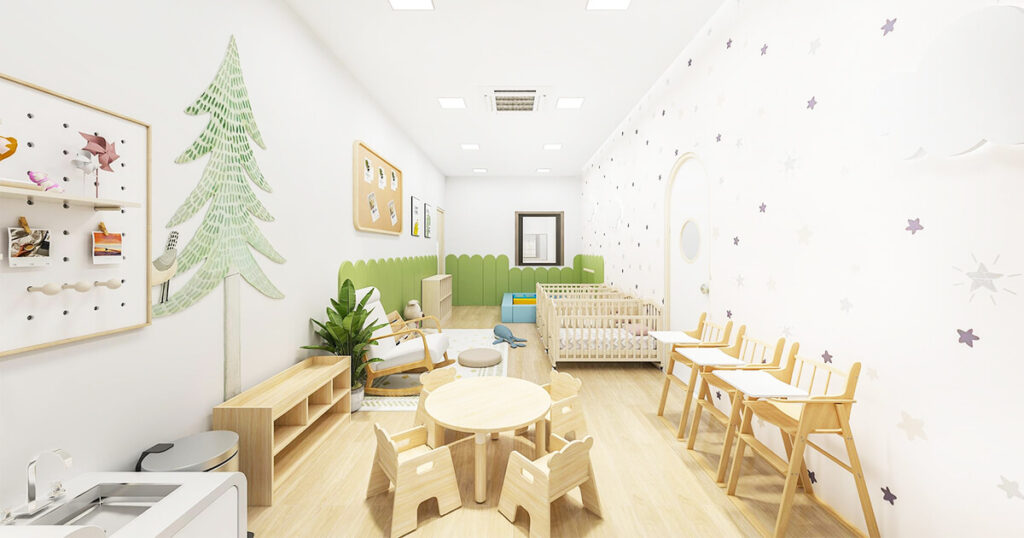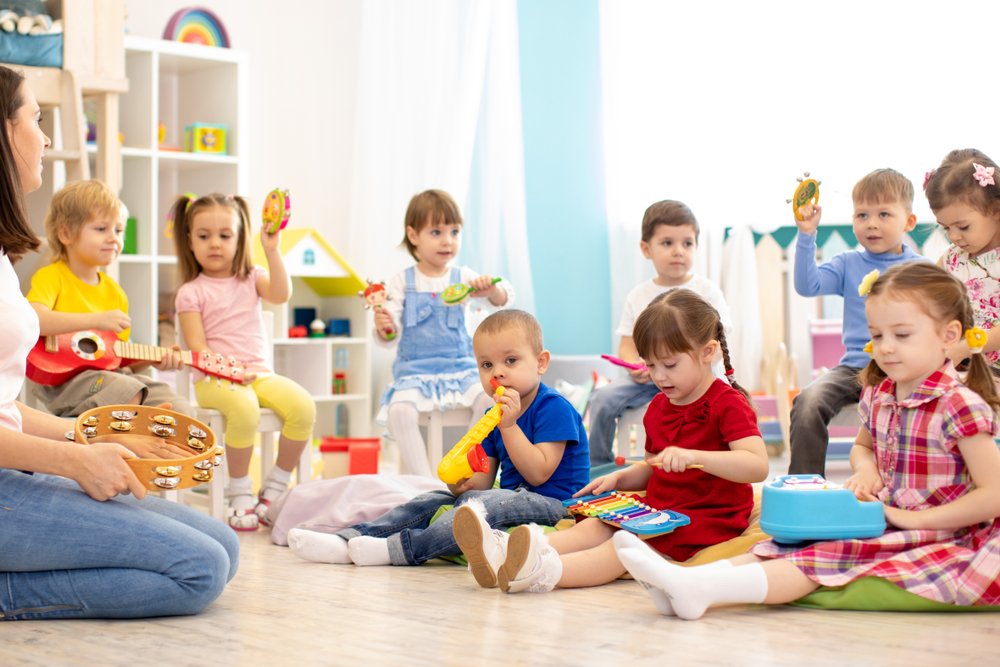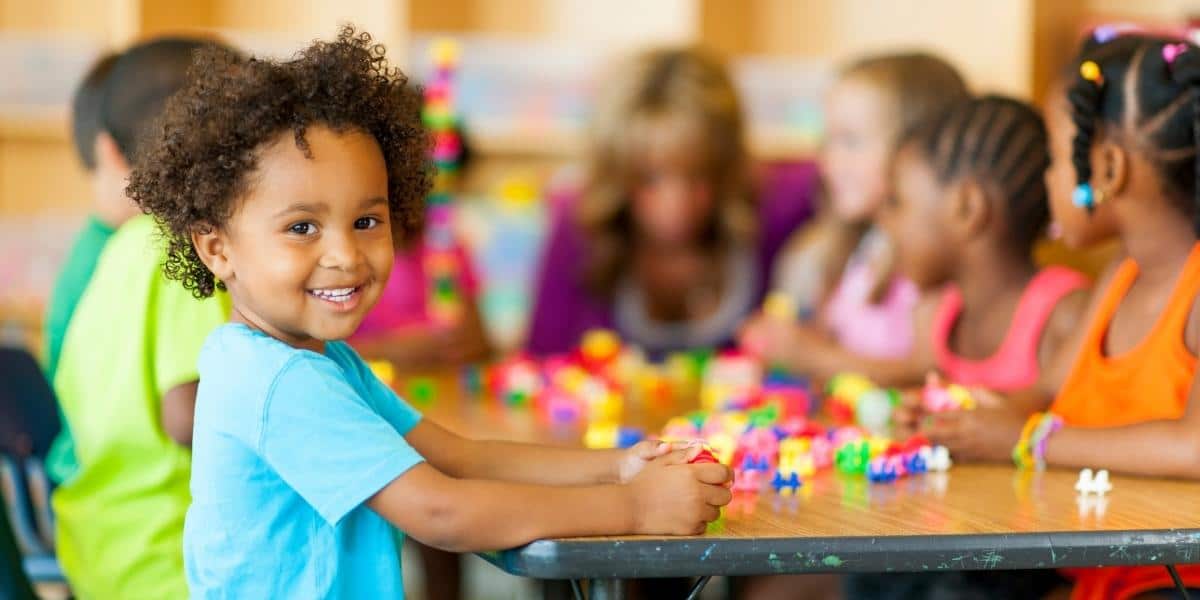What Makes Childcare North York Ideal For Working Parents
Wiki Article
The Function of Day Care in Fostering Social Skills and Very Early Knowing
Childcare serves as a substantial environment for little ones, facilitating crucial social communications that promote early discovering. In this structured setting, kids involve with caregivers and peers, creating essential interaction and participation skills. As they navigate play and different tasks, they find out to deal with problems and develop emotional knowledge. Recognizing the subtleties of these interactions reveals the profound influence childcare has on a child's development, shaping their future connections and academic readiness. What details skills do kids get in this setting?The Relevance of Social Communication in Childcare
While many parents recognize the value of very early childhood education, the duty of social interaction in daycare is commonly taken too lightly. Daycare settings offer kids with very useful opportunities to engage with peers, cultivating important social abilities. Throughout these formative years, kids discover to navigate various social dynamics, such as sharing, teamwork, and dispute resolution. Communicating with diverse age groups and individualities boosts their ability to adapt to various environments and develop compassion in the direction of others.
Building Communication Skills Via Play
Play serves as a powerful tool for youngsters to develop essential interaction abilities in childcare setups. With numerous play tasks, children involve in discussions, reveal their thoughts, and learn to listen to others. Role-playing games, for example, motivate them to make use of language in various contexts, promoting vocabulary growth and understanding of social hints.
In addition, narration during playtime allows youngsters to communicate feelings and concepts, helping them develop narrative abilities and confidence in their spoken expressions. In general, play not only offers as a delightful leisure activity however also as an essential system for developing the interaction skills essential for effective social interactions in later life.
Urging Teamwork and Teamwork
Teamwork and synergy are important abilities that kids can grow in childcare settings. Through various team tasks, such as building jobs or collective games, children learn to share obligations and job toward common goals. These communications foster an understanding of the significance of paying attention to others, negotiating duties, and compromising when required.In day care settings, caretakers often create opportunities for children to take part in synergy by urging them to take part in team tasks. This not only helps children create social bonds yet additionally grows a feeling of belonging and neighborhood.
As they navigate these participating experiences, youngsters obtain beneficial understandings into the dynamics of collaborating with peers. They find out to value varied viewpoints and identify that each member contributes distinctly to the group effort. Ultimately, these very early lessons in cooperation and teamwork prepared Going Here for much healthier connections and reliable collaboration in future social and academic setups.
Structured Discovering Activities and Cognitive Growth
Structured learning activities play an indispensable function in cultivating cognitive advancement in young kids (Child Care Near Me). These activities, which include problems, storytelling, and hands-on experiments, boost crucial reasoning and problem-solving skills. In a childcare setting, organized learning encourages youngsters to engage with their peers, improving their capacity to process details and recognize various ideas
Through guided play and interactive tasks, kids create foundational skills such as numeracy and proficiency. Activities focused around numbers can aid children comprehend mathematical principles, while storytelling improves language procurement and comprehension. Furthermore, organized discovering enables teachers to analyze developmental development and tailor tasks to private learning requirements.

Incorporating a varied series of organized tasks not just promotes cognitive growth but also prepares youngsters for future scholastic success. By supplying a balanced environment that fosters exploration and questions, childcare programs play a vital function fit the cognitive abilities of young learners.
Cultivating Emotional Knowledge and Confidence
Psychological knowledge and confidence are necessary elements of a youngster's growth, complementing the cognitive abilities cultivated with structured knowing activities. In childcare setups, kids are provided with possibilities to share their emotions and involve in social communications, which are crucial for building psychological understanding. Through led play and group tasks, kids learn to identify their feelings, recognize those of others, and develop compassion.Furthermore, interaction with peers and caregivers assists to cultivate self-confidence and resilience. Positive reinforcement and encouragement from grownups equip kids to take threats and face difficulties, promoting a sense of accomplishment. As they browse social dynamics, children develop confidence in their capabilities to communicate, team up, and solve conflicts - Daycare North York. This caring setting enables the gradual advancement of psychological intelligence, which is crucial for future interpersonal partnerships and overall wellness. Consequently, childcare plays a significant role in promoting both psychological knowledge and confidence in young kids
Regularly Asked Questions
Exactly How Can Moms And Dads Pick the Right Daycare for Their Child?
Parents should think about aspects such as area, staff credentials, safety and security standards, curriculum, and evaluates from various other moms and Childcare North York dads when choosing the ideal daycare for their child, ensuring it straightens with their youngster's developmental requirements and household values.
What Age Is Finest for Beginning Childcare?

How Does Day care Effect Children's Habits in your home?
Day care frequently favorably affects children's behavior at home by improving social abilities, advertising self-reliance, and motivating psychological regulation (Child Care Near Me). Therefore, kids may exhibit improved interaction and participation, resulting in even more harmonious household dynamicsAre There Any Downsides to Day Care Attendance?
Yes, there are downsides to daycare attendance, including potential separation anxiety, direct exposure to illnesses, and inconsistent caregiving. These elements can affect a youngster's psychological well-being and change in your home, affecting total family characteristics.Exactly How Can Parents Assistance Social Abilities Learned at Childcare?
Moms and dads can support social skills found out at day care by helping with playdates, urging participating activities, modeling favorable interactions, reviewing sensations, and strengthening sharing and interaction at home, thus enhancing their youngster's social advancement and confidence.Daycare offers as a considerable environment for young kids, facilitating essential social communications that advertise early discovering. Childcare settings supply children with important chances to engage with peers, fostering crucial social skills. Play offers as a powerful tool for children to construct crucial interaction abilities in day care setups. In childcare settings, youngsters are provided Go Here with chances to share their emotions and engage in social communications, which are critical for developing psychological awareness. Day care commonly favorably influences children's habits at home by boosting social abilities, advertising independence, and motivating psychological law.
Report this wiki page